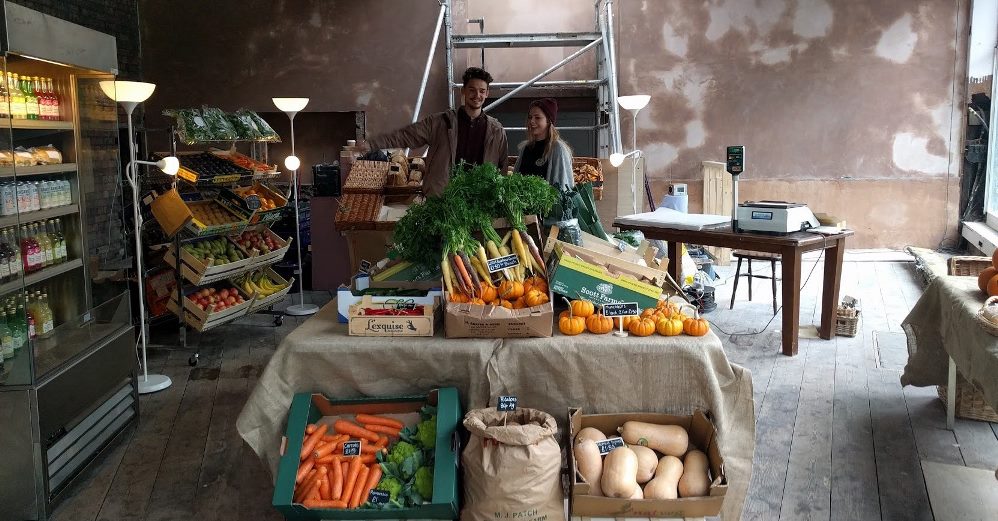In the long-struggling Stokes Croft neighborhood of Bristol, England, the LoveBristol church is on the rise.
Its members pursue idiosyncratic beliefs within a loose structure – a belief in prophecy, speaking in tongues, and the power of the Holy Spirit in instigating modern-day miracles. They also believe in urban regeneration.
The church runs a range of startups and social enterprises in the neighborhood, including a second-hand furniture shop and a vintage clothes store. These enterprises, which generate funds for charities and community arts projects, channel the ethics of Bristol’s famous street art: an active, communal idealism and an earthy, back-to-nature spirituality.
“Urban renewal is a lovely way to put what often people call gentrification,” says Neko Griffin, manager of LoveBristol enterprise Treasure retro clothes store. “That is completely the vision that I see at work in Stokes Croft. I would say it’s incredibly important because you want to be in a community where property and space is respected, and where businesses are thriving and where there’s opportunities for local people to be able to converge and connect. You don’t want an area to just be completely deprived and people to have no opportunities … that’s what is used to be like in this area.”
 The church has even invested in the property market. The Stokes Croft ethos of collective living (in the past, many of the large abandoned buildings around here were home to squatters) survives in a rather more cosmopolitan iteration: LoveBristol has bought two community houses for members, part of a network of religious communes throughout the city.
The church has even invested in the property market. The Stokes Croft ethos of collective living (in the past, many of the large abandoned buildings around here were home to squatters) survives in a rather more cosmopolitan iteration: LoveBristol has bought two community houses for members, part of a network of religious communes throughout the city.
“Is urban regeneration about more than the material?” Doug Anderson, the manager of HappyTat furniture store, asks rhetorically. “Absolutely … It’s about a piece of heaven on earth … where true expressions of what Jesus did or how he lived actually articulates itself into society. Does it happen to be here on Stokes Croft? Yeah.”
The politically and ethically self-aware locals are obsessed with authenticity and anti-corporatism, as are charismatics and evangelicals worldwide. Evangelism thrives on localism, on the notion that if you do your bit, the universe will take care of itself. Grow your own veg; grow your own relationship with Christ. Shop local, pray local.
Photo credits: LoveBristol.

